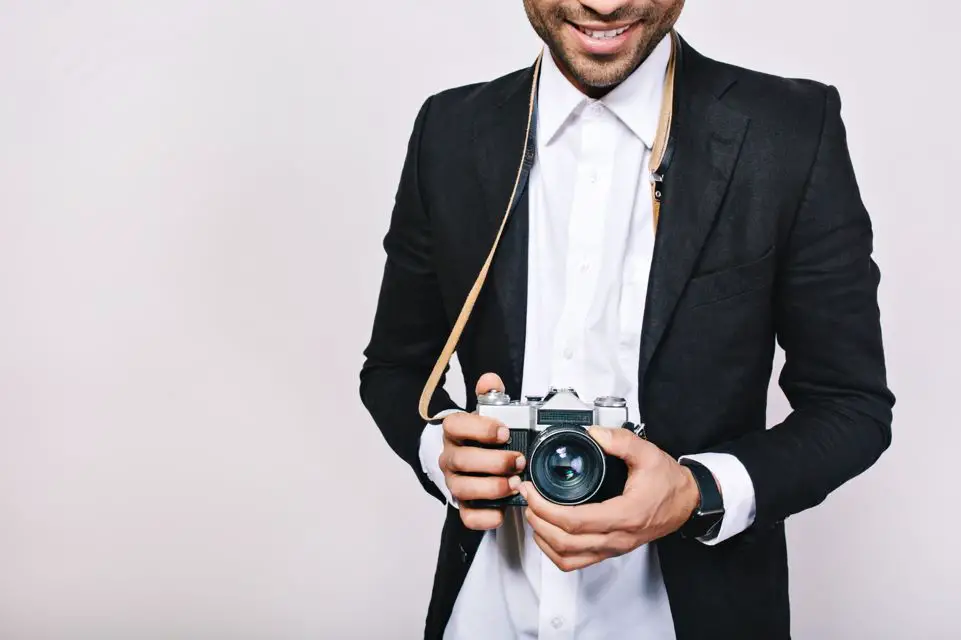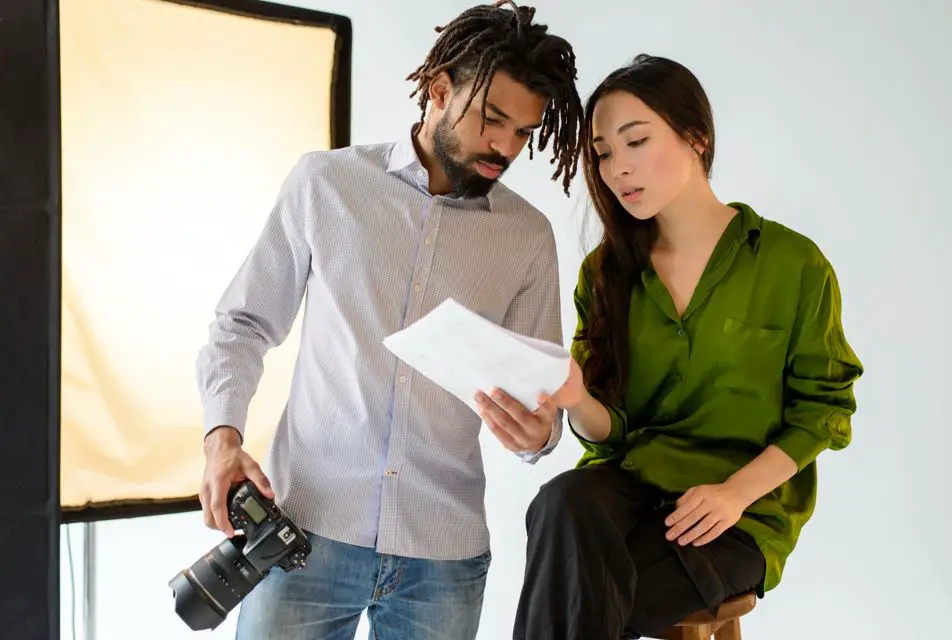Planning a wedding can be both exciting and overwhelming. With so many details, one of the most important decisions you’ll make is choosing the right wedding photographer.
These professionals are responsible for capturing the unforgettable moments of your big day, and their work will serve as a cherished memento for years to come.
This guide will help you navigate the process of selecting the ideal photographer to ensure you get the best results for your special day.
Let’s get straight to the point
Selecting the right wedding photographer is key in planning your big day. To make an informed choice, start by identifying the photography style that resonates with you, such as traditional, candid, or fine art.
Begin your search early, as top photographers book up to a year in advance. Compare packages to see what includes hours, additional photographers, and engagement shoots.
Request full wedding albums for a realistic view of their work and schedule interviews to ensure their personality fits yours. Ask important questions about equipment, photo turnaround time, backup plans, and post-production.
Before making a final decision, review the contract carefully, make a deposit, and collaborate on a shot list.
Keep open communication with your photographer leading up to the wedding to ensure everything goes smoothly.
By following these steps, you’ll find a professional who can capture your special day beautifully and preserve memories for years to come.
What to Look for in Wedding Photographers

When selecting a wedding photographer, it’s essential to understand what you’re looking for. Here’s a breakdown of six key factors to consider:
1. Do You Like Their Style?
Photography is an art, and each photographer has a unique style. Some prefer a traditional approach with posed shots, while others specialise in candid, photojournalistic images. Take the time to review each photographer’s portfolio and ask yourself:
- Do the photos resonate with you emotionally?
- Do you like their use of colour, light, and composition?
- Are the images timeless or more creative and artistic?
Remember, a technically perfect photo might not evoke the feelings you’re looking for, so make sure their style aligns with your vision.
2. Start Your Search Early
Booking a photographer should be one of the first steps in your wedding planning process. Top photographers are often booked up to a year in advance, especially if your wedding falls on a weekend or during peak wedding season.
By beginning your search early, you’ll have a better chance of securing the photographer you want and giving yourself peace of mind.
3. Compare Packages
Photographers offer different packages based on the services they provide. The price for wedding photography can range widely depending on what’s included. When comparing packages, consider the following:
- How many hours of coverage are included? (6-12 hours is typical.)
- Is a second shooter available to capture additional angles?
- Does the package include engagement photos or albums?
- Are there options for extended coverage or special effects?
Knowing what you’re getting upfront helps you plan and budget accordingly.
4. Ask for Complete Wedding Albums
Online portfolios often showcase a photographer’s best work. However, it’s essential to see a full wedding album to understand how the photographer handles different parts of the event.
Ask potential photographers to show you a complete gallery from a recent wedding, especially one similar to your style or venue.
This will give you a clearer picture of their consistency, how they manage various lighting situations, and their ability to capture every moment of the day.
5. Meet in Person
Once you’ve narrowed your list of photographers, schedule in-person or virtual meetings with each.
This is an important step to ensure their personality is a good fit. Your wedding photographer will be spending the majority of the day with you, so it’s crucial that you feel comfortable around them. If they come across as friendly and professional, it will make your day more enjoyable.
6. Ask Important Questions
When interviewing photographers, there are several key questions you should ask to make sure you’re making an informed decision:
- What is your photography style (traditional, candid, artistic)?
- Can you describe your post-production process?
- What is your policy if your equipment fails on the day of the event?
- How long will it take to receive the edited photos?
- Do you have backup equipment?
By asking these questions, you’ll better understand how the photographer works and what to expect.
Key Considerations for Wedding Photography
Beyond the basics, there are additional aspects of wedding photography that are worth considering as you make your decision:
1. Understanding Photography Styles
There are several different wedding photography styles, and knowing which one you prefer is important. Here are a few popular ones:
- Traditional Photography: These photos are posed and often formal, capturing key moments such as the first kiss, cake cutting, and family portraits.
- Photojournalistic Photography: This style focuses on capturing candid moments throughout the day, telling the story of your wedding through unposed images.
- Fine Art Photography: Often more creative and artistic, fine art photography might involve unique compositions, lighting, or post-production techniques.
- Lifestyle Photography: A blend of photojournalism and traditional photography, this style captures natural moments but is often lightly posed.
Choosing the style that resonates with you will ensure your wedding photos reflect your personality and the day’s mood.
2. The Importance of Backup Equipment
A professional wedding photographer should always have backup equipment, including extra camera bodies, lenses, batteries, and memory cards.
Weddings are live events with no do-overs, so having backup gear is essential to avoid missing any important moments due to technical issues.
3. Turnaround Time for Photos
The excitement doesn’t end when the wedding is over; the anticipation for the photos begins. Be sure to ask about the photographer’s turnaround time.
Typically, photographers deliver edited images within 4-8 weeks, depending on their workload and the complexity of the editing process. It’s a good idea to clarify this timeline during the interview process.
4. Handling Unpredictable Weather
Rain or other weather challenges can occur unexpectedly on your wedding day. A skilled photographer will know how to adapt and still create stunning images, even in less-than-ideal conditions.
Ask how they handle inclement weather and whether they have experience shooting in various lighting conditions.
Key Steps to Take Before Making a Final Decision

After meeting with potential photographers and asking all the right questions, it’s time to decide. Here’s a step-by-step guide to finalising your choice:
1. Review Contracts Carefully
Once you’ve selected your photographer, review the contract thoroughly. Ensure all details, including hours of coverage, deliverables (such as albums or digital files), and costs, are clearly outlined. P
pay attention to cancellation policies, overtime fees, and any additional costs for travel or extra shooters.
2. Make a Deposit and Confirm the Date
Most photographers require a deposit to secure the date. Be prepared to pay a percentage of the total fee upfront, with the balance due closer to the wedding day.
Your photographer is locked in once the deposit is paid, and you can confidently move forward.
3. Create a Shot List
Work with your photographer about a month before your wedding to create a shot list. This ensures that no important moments are missed. Include must-have shots such as:
- Getting ready photos
- First look
- Ceremony shots (vows, first kiss)
- Family portraits
- Reception moments (cake cutting, first dance)
Having a plan in place will help your photographer capture all the special details of the day.
4. Stay in Communication
Maintaining open communication with your photographer in the lead-up to the wedding is key. If any changes arise, such as adjustments to the schedule or venue, make sure to keep them informed. This will help them plan accordingly and ensure a smooth experience.
Conclusion
Choosing the right wedding photographer is critical to planning your big day. With careful research, early preparation, and thoughtful consideration of styles, packages, and personalities, you’ll be well on your way to finding the perfect photographer to capture your special moments.
Remember, your wedding photos will be one of the most cherished keepsakes from the day, so take the time to select a professional whose work you love and who aligns with your vision.
By following the steps outlined in this guide, you can make a confident decision and ensure that your wedding memories are preserved beautifully.
So, take a deep breath, enjoy the process, and look forward to reliving your wedding day through stunning photographs for years.
Frequently Asked Questions
What Are the Benefits of Hiring a Professional Photographer for Your Wedding?
There was no way to see a preview of your photos before you developed them back when film was the norm. A “just okay” collection of photos was the best that could be hoped for. Although it was preferable to have any photographs rather than none at all, amateur photography rarely produced anything truly remarkable.
This is an entirely different story now. The advent of modern technology has made it possible to take stunningly excellent photos using only a smartphone. For the best wedding photos, have just one or two “official” photographers on hand. Planning your wedding photography is important whether or not you hire a professional photographer so that you have the images you need to capture the day.
For How Long Should a Photographer Be Present at Your Wedding?
The standard wedding package includes eight hours of coverage, which is more than enough time to photograph the entire event.
Approximately How Many Wedding Pictures Should the Photographer Take?
For an 8-hour wedding day, that breaks down to 100 shots every hour, or about 800 total.
As we’ve already established, this cost isn’t some sort of mandated minimum that every wedding photographer must meet.
Is It Customary to Tip the Wedding Photographer?
It is customary to tip a photographer 15-20% of the total cost if you are satisfied with their work. Tipping your wedding photographer is always greatly appreciated and goes far beyond what is expected of you as a client.
In Other Words, Should the Photographer Dress Formally for the Occasion?
A wedding photographer’s appearance should reflect the high standards expected of their work. While there is no hard and fast rule about what photographers must wear, it is appreciated if they choose an outfit that recognises and enhances the importance of the event to the bride and groom.

